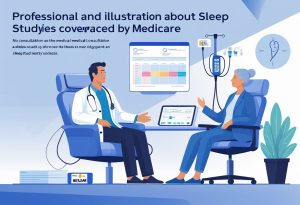Medicare does a pretty good job of keeping people healthy. Upon initial enrollment in Part B, Medicare pays for an initial preventive physical examination in which doctor and patient review medical and social health history and discuss preventive services. Then annually thereafter, Medicare pays for an annual wellness visit where doctor and patient develop or update a personalized prevention plan and do a new health risk assessment. The initial exam must be done within the first 12 months of enrolling in Medicare Part B—so you might include this reminder in your checklist for retirees. But if they miss it, they can always catch up at their annual wellness visit.
There are specific protocols for the annual wellness visit. Some doctors follow them better than others (I speak from experience). The visit should include a general health risk assessment based on current health status and medical and family history, a review of drug and supplement use, measurements and tests the doctor deems necessary, and referrals to programs for smoking cessation and weight management, among others. There should also be a discussion of advance directives, including the types of decisions clients may need to make about end-of-life care and the forms that will allow a trusted person to make medical decisions on the client’s behalf. The medical group I go to has its own form and brings in a notary on Thursdays to make it easy for people to execute their forms and have them be included in their medical file. This is another thing to add to your checklist.
One of the main purposes of these free wellness visits is to establish a plan for health screenings and immunizations. These will be individualized for each client, of course, based on their own health risks. While Medicare pays for specific screenings at specific intervals, these can be accelerated if risks are higher. For example, Medicare will pay for a colonoscopy every 10 years for people not at high risk, or every two years for those at high risk.
A website called Better Health While Aging has come up with 26 recommended preventive health services for older adults which combines recommendations of the U.S. Preventive Services Task Force (USPSTF) with Medicare’s coverage of preventive health services. The USPSTF is an independent, volunteer panel of national experts in prevention and evidence-based medicine. They assign a letter grade (A, B, C, or D or an I statement) based on the strength of the evidence and balance of benefits and harms of a preventive service. For a preventive service to be recommended, there should be proof that providing the service results in improved health outcomes for most people. If a screening is not recommended it may be because research has not proven that detecting certain problems leads to better outcomes. For example, screening for prostate cancer by checking PSA levels in older men is no longer recommended because research found that overall screening didn’t save many lives, but did cause men to undergo many painful biopsies or treatment of small prostate cancers that probably would have never troubled them. And many preventive services become optional—or sometimes even recommended against—when people reach a certain age or state of poor health.
Preventive services fall into six areas. Many of them are included in Medicare’s annual wellness visit) For additional information about Medicare coverage for each item, click on the associated links.
Mental health, cognitive health, and substance use
- Checking for depression
- Checking for tobacco use
- Checking for alcohol misuse
- Checking for signs of cognitive impairment
Safety and functional ability
- Asking about falls
- Checking for signs of functional impairment and assessing home safety
- Checking for signs of elder mistreatment
Physical health
Cancer screening
- Screening for high blood pressure
- Screening for high cholesterol
- Screening for obesity
- Screening for abnormal blood glucose and type 2 diabetes
- Screening for abdominal aortic aneurysm
- Screening for osteoporosis
- Screening for hepatitis C
- Screening for HIV
- Screening for other sexually transmitted infections
- Colorectal cancer
- Breast cancer
- Cervical cancer
- Lung cancer
- Prostate cancer
Vaccinations
- Influenza
- Pneumococcal disease (commonly known as the “pneumonia vaccines”)
- Shingles (covered under Medicare Part D with coinsurance or copay)
- Tetanus-diphtheria (Td) and tetanus-diphtheria-pertussis (Tdap) (Covered under Medicare Part D)
Medications for prevention
What about Life Line screenings?Your clients have likely received multiple flyers for Life Line Screening, which advertises itself as “America’s leading provider of quality health screenings.” This national company sets up in churches and school around the country and offers a number of tests designed to detect cardiovascular disease that are neither recommended by the USPSTF nor covered by Medicare. Their sales pitch is compelling—who wouldn’t want to know if a heart attack or stroke were just waiting to happen?—but there does not appear to be scientific evidence to support the tests, which can cost many hundreds of dollars. Tell your clients to save their money.
But do educate clients who are new to Medicare about the many screenings and preventive services that are now available to them. This is one of several benefits that came about as a result of the Affordable Care Act. Clients might as well take advantage of them.
References and further reading
Annual Wellness Visit






